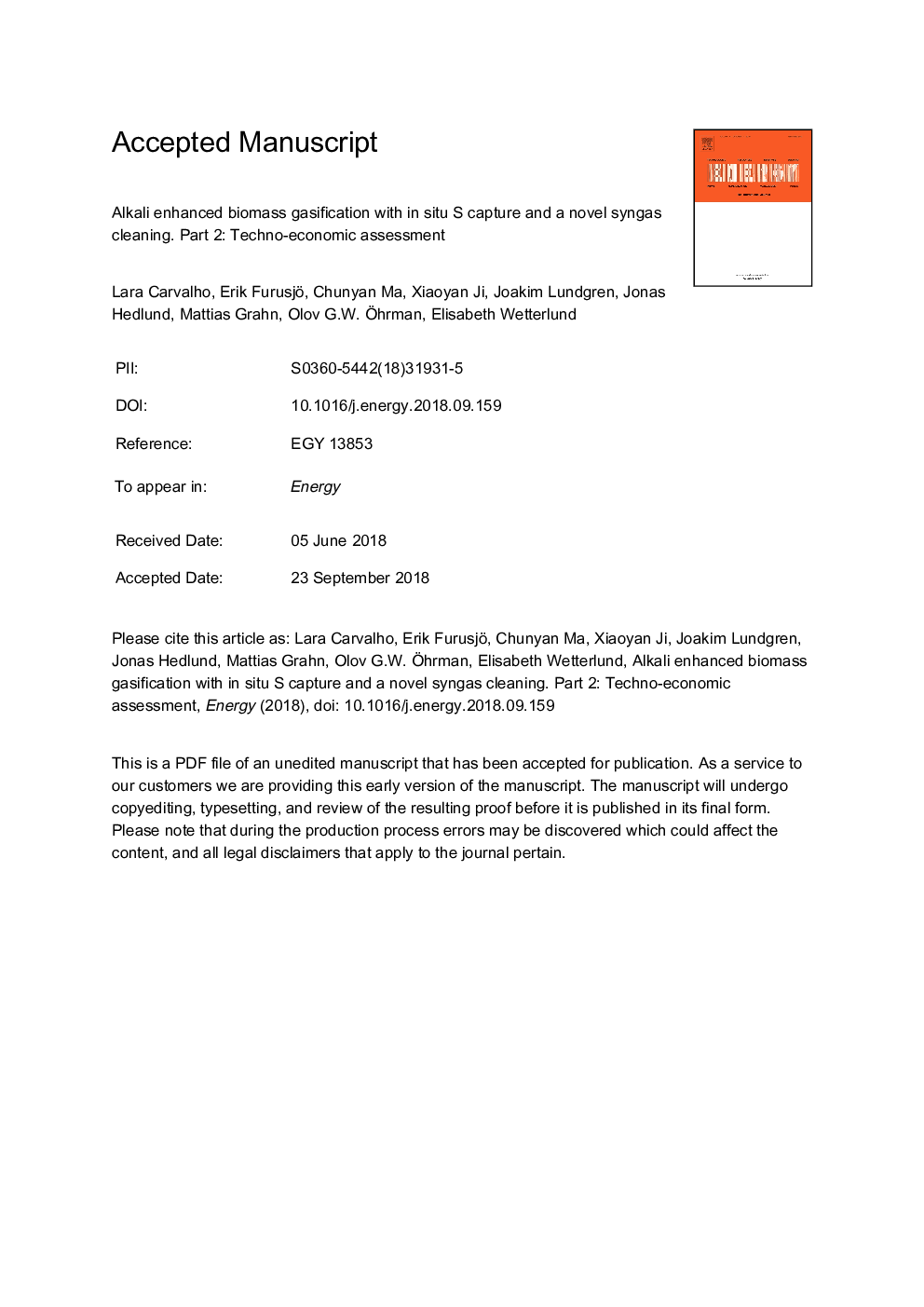| Article ID | Journal | Published Year | Pages | File Type |
|---|---|---|---|---|
| 11015661 | Energy | 2018 | 24 Pages |
Abstract
Previous research has shown that alkali addition has operational advantages in entrained flow biomass gasification and allows for capture of up to 90% of the biomass sulfur in the slag phase. The resultant low-sulfur content syngas can create new possibilities for syngas cleaning processes. The aim was to assess the techno-economic performance of biofuel production via gasification of alkali impregnated biomass using a novel gas cleaning system comprised of (i) entrained flow catalytic gasification with in situ sulfur removal, (ii) further sulfur removal using a zinc bed, (iii) tar removal using a carbon filter, and (iv) CO2 reduction with zeolite membranes, in comparison to the expensive acid gas removal system (Rectisol technology). The results show that alkali impregnation increases methanol production allowing for selling prices similar to biofuel production from non-impregnated biomass. It was concluded that the methanol production using the novel cleaning system is comparable to the Rectisol technology in terms of energy efficiency, while showing an economic advantage derived from a methanol selling price reduction of 2-6 â¬/MWh. The results showed a high level of robustness to changes related to prices and operation. Methanol selling prices could be further reduced by choosing low sulfur content feedstocks.
Related Topics
Physical Sciences and Engineering
Energy
Energy (General)
Authors
Lara Carvalho, Erik Furusjö, Chunyan Ma, Xiaoyan Ji, Joakim Lundgren, Jonas Hedlund, Mattias Grahn, Olov G.W. Ãhrman, Elisabeth Wetterlund,
